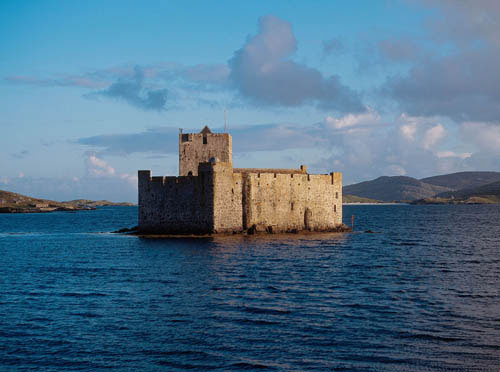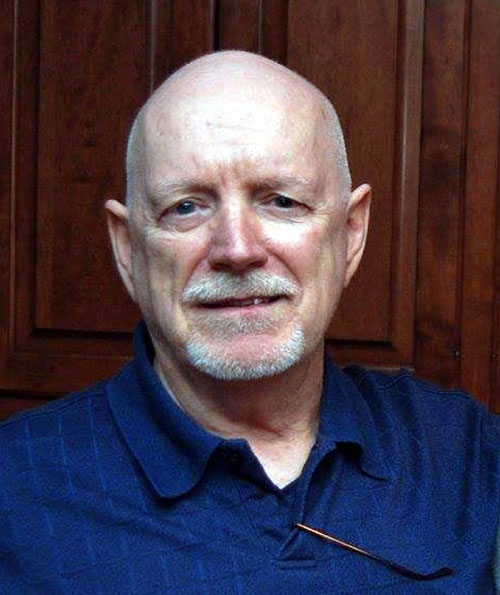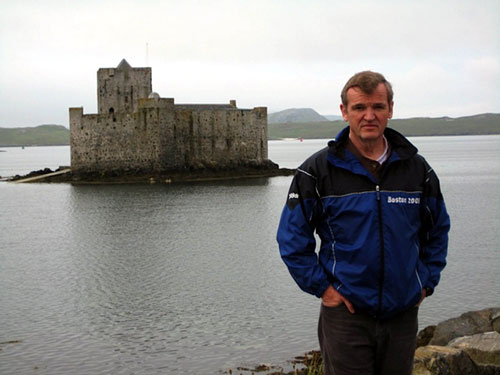DNA tests on a Scottish clan have destroyed their claim to royal Irish ancestry – and proved they are Vikings.
For centuries the MacNeil clan based on the Hebridean island of Barra have claimed to be descendants of a Ireland’s “greatest” King, Niall of the Nine Hostages.
But hundreds of cheek swabs taken from Barra MacNeils as far away as Canada and Australia have proved that the blood of fierce Norse raiders runs through their veins.
The finding comes from the MacNeil Surname Y-DNA project run by genealogists Vincent McNeil and Alex Buchanan.

Clansmen from all over the world including Scotland, the US, Canada, New Zealand and Australia have provided DNA samples.
MacNeil remains the main surname on Barra on the southern tip of the Outer Hebrides with a population of just 1,000.
For centuries the MacNeils have believed they descended from Niall of the Nine Hostages through an 11th century Irish prince who emigrated to Scotland.
But the DNA project has not found a single match to Ireland.
“We can say we can re-write the history of the Clan MacNeil,” said genealogist Vincent MacNeil, from Nova Scotia, Canada.
“We don’t have one participant from Barra that matches the O’Neills of Ireland.
“If you look at the history of the Clan MacNeils we are probably of Norse descent.”
He added: “We have legends and myths that have been passed through generations.
“But mother nature knows who we are. Oral history is wonderful and often there is truth in to. But everybody’s family history is in their DNA.”
The clan was infamous throughout Scotland and beyond for its Viking-style pirating and great seamanship.
MacNeils raided the seas from their base at Kisimul Castle in Birlinn vessels – boats similar to the Viking longships.
Western Isles MP, Angus MacNeil, who also lives on Barra, said: “The MacNeils were a notoriously pirating clan. It’s no surprise we have Norse DNA.
“Maybe we are the last vikings.”
The MP joked: “‘Conquer or die’ is the clan motto. Given the size of the island we ended up on we must have been better at the dying then the conquering.”

Paul McNeil, a 70-year-old clansman, from Washington state, said he was “devastated” when he got his DNA results.
He said: “I nervously awaited the results, and was emotionally devastated when we received them.”
The college teacher added: “A heavy workload (and a bottle of whiskey (corr) after work), helped me to get over it in a matter of weeks.”
“I found solace in the fact that, if not a Celt, I am nevertheless a Gael.

Michael MacNeil, 62, from Nova Scotia, Canada, said: “It wasn’t what I expected.”
The Aerospace engineer, whose family emigrated from Barra seven generations ago, continued: “I’m pretty good with being of Viking descent. I have no problems at all. You are what you are.”
Calum MacNeil, a retired fisherman who lives near Castlebay on the Isle of Barra, joked: “I knew that anyway but I didn’t want to tell anybody.”
Niall of the Nine Hostages, whose dynasty dominated Ireland between the 5th and 10th Centuries, got his name from taking hostages as a strategy against his opponent chieftains.
The King, who died in 405AD, was the founder of the longest and most powerful Irish royal dynasty and known by some as the greatest king that Ireland ever knew.
Alex Buchanan, from Hobart, Tasmania, who helped set up the project, said: “All MacNeils from Barra (so far tested) have Viking Y-DNA.
“They are of two types: The MacNeils of Barra who have an oral history linking them to the Chiefly line and most clansmen are in a group defined by the Y-DNA marker L165.
“The other type forms a smaller group of clansmen defined by Y-DNA marker L176.
“The Argyll MacNeils belong to a third Viking-derived group defined by Y-DNA marker L22.”
He added: “Some McNeills from Argyll, but mostly from the Glasgow region, do have Irish Y-DNA, however I think we will find that it is no more common amongst McNeills that it is amongst any other group of Scotsmen from the west of Scotland.
“Irishmen have been moving to Scotland for a very long time, there was a great influx during the industrial revolution when they came in search of employment in the factories of the Clyde region.”

